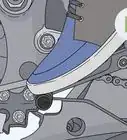wikiHow is a “wiki,” similar to Wikipedia, which means that many of our articles are co-written by multiple authors. To create this article, 9 people, some anonymous, worked to edit and improve it over time.
There are 7 references cited in this article, which can be found at the bottom of the page.
This article has been viewed 41,362 times.
Learn more...
Being a biker is often associated with being a rebel, or an outlaw. While there are biker gangs that roam the open road, you don't have to belong to a gang to enjoy the biker lifestyle. Shop around for a motorcycle that suits you, and remember to buy some protective gear. Once you get the hang of riding, you may want to consider joining a club. Whether you're part of a club, or you ride alone, always follow the rules of the road.
Steps
Buying a Motorcycle
-
1Get the bike that suits you best. Think about what you want to do with your bike, and how you want to ride it. If you're a new rider, you should consider the weight of the bike, as well as how tall it is. You want to be able to put both feet down on the ground when you come to a stop.
- Bikes come in all shapes and sizes. When shopping for your bike, think about how you want to ride it. Do you want something you can cruise around on, or do you want something a little more extreme? If you're looking to tour around on a bike, opt for a traditional motorcycle. If you want something with speed, consider a sportbike.[1]
- Start looking at various manufacturers' websites to find the specifications of bikes. Select a few you're interested in and compare them to find one that suits your needs.
-
2Set a budget. Motorcycles can range from under $5,000 to $25,000. Before you drop thousands of dollars on a motorcycle, do some research on the going rate for the bike in question. You may find a cheaper alternative.[2]
- Consider buying a used bike if this is your first time buying a motorcycle. When you're learning to ride, you run the risk of laying your bike down at some point. If you buy a used bike, you won't feel so bad if it gets a little dinged up. Once you get the hang of riding, you can swap your bike for something nicer.[3]
- Keep in mind that you will have to pay a few other fees for owning a motorcycle aside from the cost of the bike. There are title and registration fees, sales tax, and in some cases, a delivery fee. If you buy used, you may have to pay for some maintenance if the bike needs any work done.[4]
Advertisement -
3Buy protective gear. After you buy your bike, you'll need to invest in a helmet. While there are plenty of other riding accessories available, a helmet is essential.[5]
- When shopping for a helmet make sure you buy one that has a good fit. You want your helmet to be snug around your cheeks and jaw, as well as the top and sides of your head. Be wary of used helmets, as they may not offer as much protection due to wear and tear.[6]
- Other riding accessories include riding jackets, boots, and gloves. The more you can protect yourself on a bike, the better off you will be. Shop for jackets and gloves that have armor sewn into them. Armored gear offers the most protection if you do end up in a crash.[7]
-
4Remember to get a license for your bike. Depending on which state you live in, the rules for getting your motorcycle license may vary. Some states require a motorcycle safety course before giving potential riders their license. Check with the Department of Motor Vehicles to find out what the requirements are in your state.[8]
Joining a Club
-
1Think about what type of club you want to join. There are motorcycle clubs, and then there are riding clubs. Each club offers something different for members.[9]
- Riding clubs are for people who only want to ride. You meet with some other members, ride around, and that's it. There are rarely any other commitments when you join a riding club.[10]
- Motorcycle clubs are more social. They value forming bonds with your fellow members, creating a brotherhood of sorts. Motorcycle clubs tend to require a lifelong commitment to the club. There are often dues involved, as well as required attendance to club-sponsored events.[11]
-
2Find a club that you're interested in. You can find clubs for a wide variety of interests. There are clubs based on anything from the type of bike you ride, to what you do for a living. Check online to find information on any club chapters that may operate in your area.[12]
-
3Apply for membership. Depending on the type of club you are interested in, you may have to apply for membership. Some riding clubs are free, while others may require dues.[13]
- If you want to join a riding club, all you have to do is approach your local chapter and ask what it takes to join. If you can't find a local chapter, you can start your own. If you find enough members, you can become an AMA (American Motorcycle Association) certified group.
- Motorcycle clubs can be much more difficult to join. Some motorcycle clubs recruit members by invitation only. If you want to join an established motorcycle club, find out where the local chapter meets and start hanging around. Introduce yourself to some of the members and get to know them. If the members get along with you, they may ask you to join.[14]
- Motorcycle clubs often get bad press because they can sometimes resemble gangs. While there are several motorcycle clubs that operate on the wrong side of the law, not every motorcycle club is bad. Before you join any club, do your research and make sure you know what you're getting into.[15]
-
4Go on group rides. A big part of both clubs is group riding. Group rides offer companionship and great views, but there are some rules to follow.
- Make sure your group plans the ride before setting out. Discuss things such as destination, how long you plan to ride, or where you'll be stopping.
- Follow a set riding order, with an experienced rider in the lead. Less experienced riders should be right behind the lead, with veteran riders next. This way, the experienced riders can keep an eye on the new riders.
Following the Rules of the Road
-
1Be courteous to other riders and drivers. Pay attention to your surroundings and take care to stay out of any blind spots on the road. Avoid weaving through traffic, or riding on the shoulders.[16]
-
2Always wear your safety gear. You should never ride your motorcycle without wearing the appropriate safety gear. Even if you're going down the street, wear your helmet.[19]
-
3Ride sober. Handling a motorcycle requires more skill than driving a car. Drinking before riding your motorcycle will hinder your ability to ride safely.[20]
- Don't be fooled into thinking that you can ride if you've only had a few drinks.
-
4Take extra care when riding with a passenger. If you have a bike that allows you to carry a passenger, make sure you are skilled enough to carry them on your bike. Give your passenger a helmet, and make sure they're comfortable riding with you.[21]
Community Q&A
-
QuestionDo I need a motorcycle license to join a club?
 KillerkitanaCommunity AnswerIf you are expecting to ride a motorcycle a license is required.
KillerkitanaCommunity AnswerIf you are expecting to ride a motorcycle a license is required. -
QuestionHow old do I have to be to join a motorcycle club?
 Community AnswerYou have to be 18 and you have to have a motorcycle license.
Community AnswerYou have to be 18 and you have to have a motorcycle license.
References
- ↑ http://www.popularmechanics.com/cars/motorcycles/a293/1751147/
- ↑ http://www.dmv.org/how-to-guides/buying-motorcycle.php
- ↑ http://www.popularmechanics.com/cars/motorcycles/a293/1751147/
- ↑ http://www.dmv.org/how-to-guides/buying-motorcycle.php
- ↑ https://www.allstate.com/tools-and-resources/motorcycle-insurance/tips-for-buying-motorcycle-safety-gear.aspx
- ↑ https://www.allstate.com/tools-and-resources/motorcycle-insurance/tips-for-buying-motorcycle-safety-gear.aspx
- ↑ https://www.allstate.com/tools-and-resources/motorcycle-insurance/tips-for-buying-motorcycle-safety-gear.aspx
- ↑ http://www.dmv.org/motorcycle-license.php
- ↑ http://www.motorcycleridingclubs.net/2008/04/riding-clubs-motorcycle-clubs.html
- ↑ http://www.motorcycleridingclubs.net/2008/04/riding-clubs-motorcycle-clubs.html
- ↑ http://www.motorcyclephilosophy.org/2008/03/men-join-motorcycle-clubs.htm
- ↑ http://www.motorcyclephilosophy.org/2008/03/men-join-motorcycle-clubs.htm
- ↑ http://www.motorcycleridingclubs.net/2008/04/riding-clubs-motorcycle-clubs.html
- ↑ http://www.motorcycleridingclubs.net/2008/04/riding-clubs-motorcycle-clubs.html
- ↑ http://www.motorcyclephilosophy.org/2008/03/men-join-motorcycle-clubs.htm
- ↑ http://www.nhtsa.gov/people/injury/pedbimot/motorcycle/motosafety.html
- ↑ http://www.nhtsa.gov/people/injury/pedbimot/motorcycle/motosafety.html
- ↑ http://www.nhtsa.gov/people/injury/pedbimot/motorcycle/motosafety.html
- ↑ http://www.nhtsa.gov/people/injury/pedbimot/motorcycle/motosafety.html
- ↑ http://www.nhtsa.gov/people/injury/pedbimot/motorcycle/motosafety.html
- ↑ http://www.nhtsa.gov/people/injury/pedbimot/motorcycle/motosafety.html
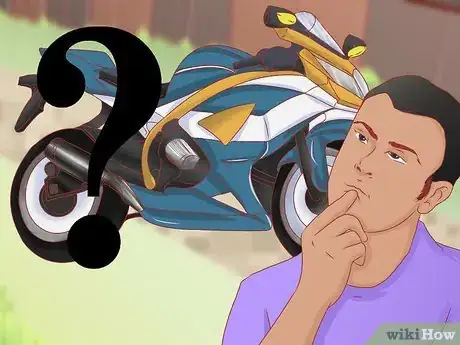
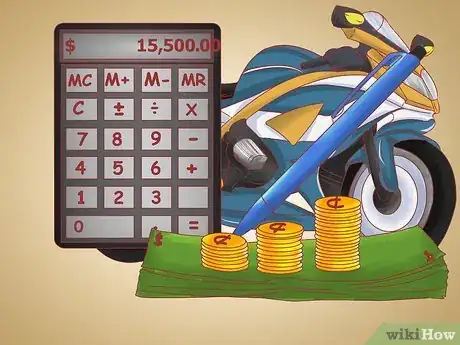
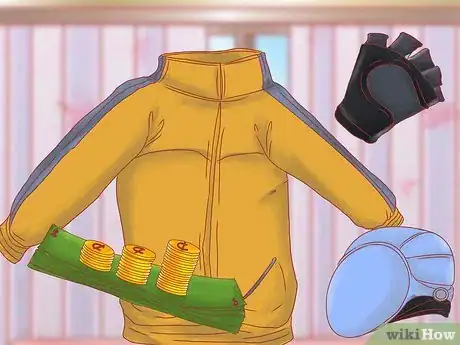
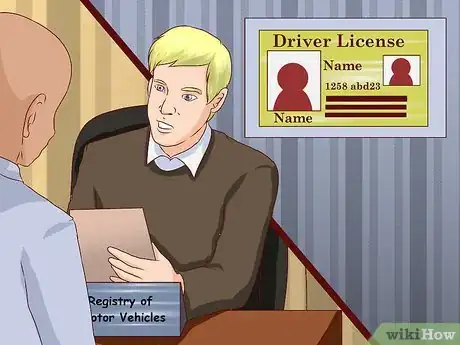
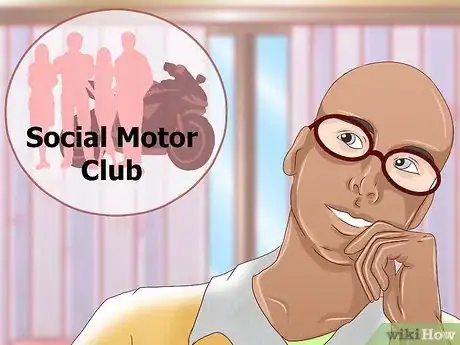
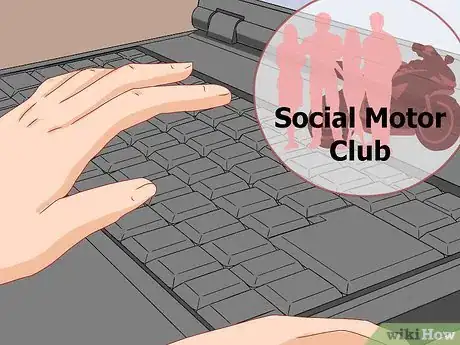
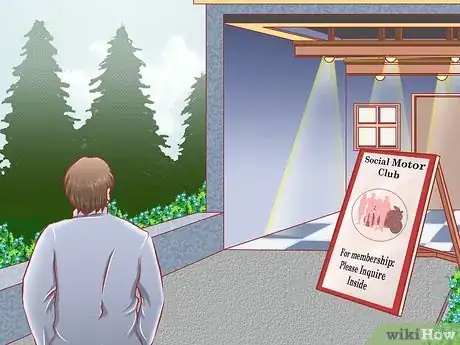
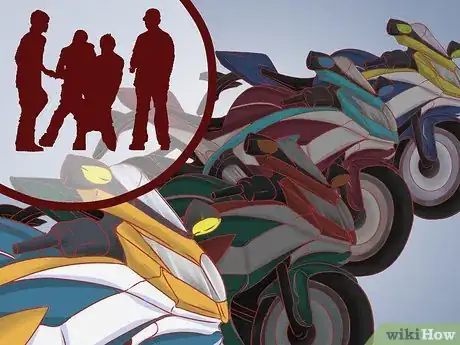
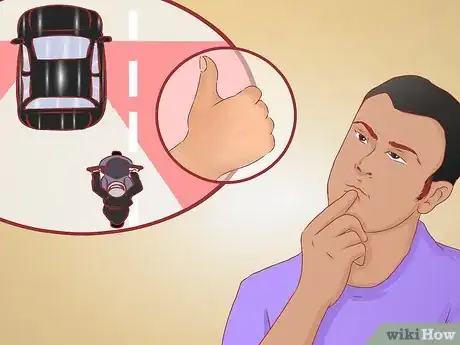
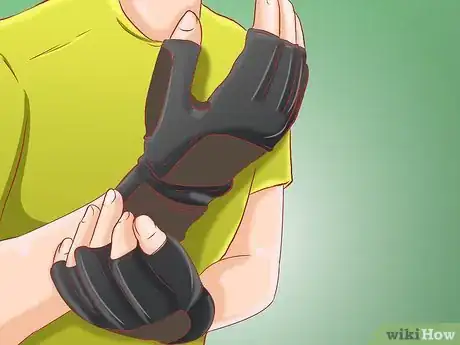
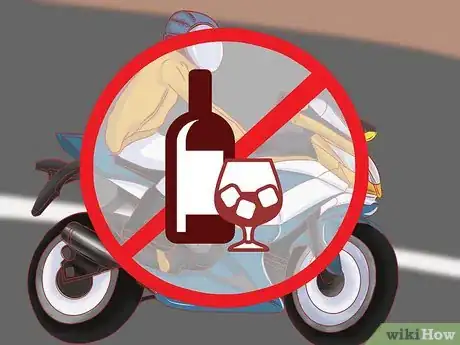
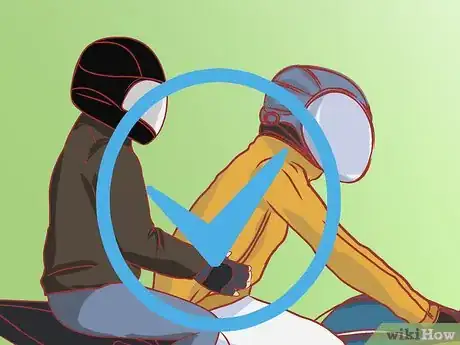
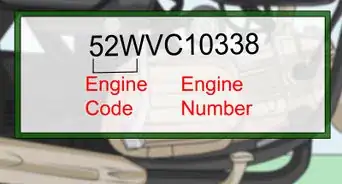
-Step-13.webp)
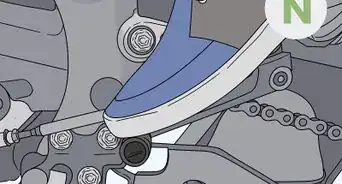
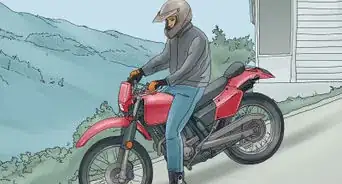

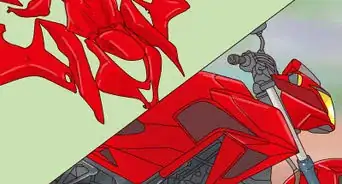

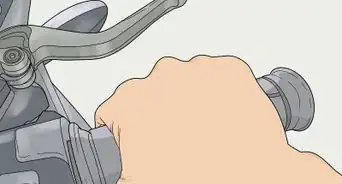
-Step-17.webp)








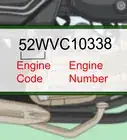
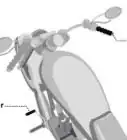
-Step-13.webp)
